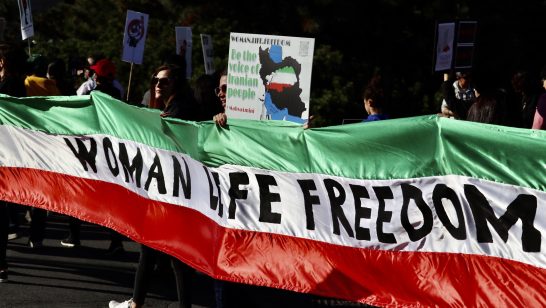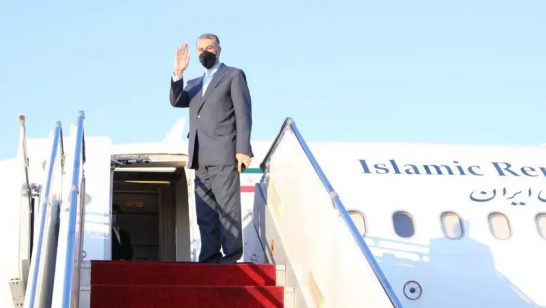
In Israel, there are few politicians and experts who believe that the JCPOA is salvageable. Even fewer people believe that a non-military option could ultimately be used to deal with the threats posed by Iran’s expanding nuclear program.
However, a comparatively more diverse range of opinions can be observed when it comes to the question: “What should be the trigger to attack Iran’s nuclear program?”. Some believe the trigger should be if Iran decides to enrich at 90%. Others think it should be the detection of the decision by the supreme leader of Iran, Ali Khamenei, to make a nuclear weapon. Some policymakers and experts believe that an attack must only be with US acquiescence and support, while others believe that Israel must launch such an attack on its own, as the US cannot ultimately be counted on. This is largely due to the US being against Israel’s decision to attack Iraq’s nuclear facilities in 1982 and their refusal to attack Syria’s nuclear program in 2007, leaving Israel to undertake this task alone.
The new government in Israel is chaotic and unstable. It has proven to be the most controversial and extremist right-wing government in Israel’s history Meir Javedanfar
The new government in Israel is chaotic and unstable. It has proven to be the most controversial and extremist right-wing government in Israel’s history, and it is not clear whether it will survive much longer: The differences within the opposition and among its own ranks regarding crucial issues, such as the proposed reforms for Israel’s judiciary, may ultimately prove to be too deep and insurmountable, leading to a sooner than expected downfall.
But when it comes to Iran’s nuclear program and how to confront it, there is not a huge gap between the current Israeli government and the opposition. The only significant difference between them is in how to manage relations and differences with the United States over a nuclear Iran. In the past, the Netanyahu government has acted confrontationally with the US, especially during the Obama administration. Netanyahu publicly confronted President Obama’s Iran policies not only in the press but also in the US Congress. In contrast, the Bennett- Lapid government adopted a different policy: work closely with the Americans and keep differences with Washington behind closed doors.
In the past, the Netanyahu government has acted confrontationally with the US, especially during the Obama administration. Meir Javedanfar
Even if the current government survives, new challenges confront its military option against Iran. The first is Iran’s improving relations with the Putin administration in Moscow. Iran is a crucial supplier of military equipment, especially drones, to Russia’s army, which is critical to Putin’s military campaign in Ukraine. Considering this development, Israel would have to consider a possible Russian backlash because of an Israeli attack against Iran’s nuclear facilities. While a nuclear-armed Iran does not seem to be in the interest of Russia for now, they would be concerned and potentially displeased if an Israeli attack against Iran’s nuclear installations turns into a wider war between Iran and Israel.
Russia would be concerned and potentially displeased if an Israeli attack against Iran’s nuclear installations turns into a wider war between Iran and Israel. Meir Javedanfar
This is because in a conflict scenario between the two countries, Iran’s critical military infrastructure, including its drone-making facilities, could be attacked, which would have a direct negative impact on Russia’s war efforts in Ukraine. This could compel Putin to act against Israel – potentially translating into the supply of sophisticated anti-aircraft systems to Iranian forces inside Iran and Syria. It could also end the current coordination program between Russian forces in Syria and the Israeli defence forces. This program has been crucial for Israel’s operations in Syria because they avoid possible clashes with Russian forces. If the Russians end this program, it could make it more difficult or even dangerous for Israel to continue attacking Iranian targets in Syria.
A second new development that Israel would now have to consider is the recent China-brokered agreement between Iran and Saudi Arabia. The deal will reestablish embassies on each other’s soil after a seven-year break. Before this development, some analysts believed that, due to Iran and Saudi’s bitter proxy war in Yemen, the Saudis would allow Israeli aircraft to fly over their territory in the case of an Israeli attack against Iran’s nuclear infrastructure.
However, after the recent China-brokered agreement, it may no longer be in the interests of the Saudis to allow Israel to use its airspace. This would severely undermine Israel’s ability to carry out direct attacks against Iran’s nuclear installations from its own territory. There have been several unconfirmed reports about Israel having military bases in Azerbaijan, which it could theoretically use to attack Iran’s nuclear installations. Even if these reports are true, the number of Israeli aircraft and ammunition based at these bases is unlikely sufficient for a sustained air campaign. Therefore, Israel’s ability to attack Iran from its own territory is crucial.
After the recent China-brokered agreement, it may no longer be in the interests of the Saudis to allow Israel to use its airspace. Meir Javedanfar
Finally, the current Israeli government’s lack of legitimacy at home and abroad will likely pose a significant hurdle to justify an attack. Three months into his new government’s election, Netanyahu has isolated Israel abroad on an almost unprecedented scale. Relations with the UAE have been undermined for numerous reasons, including the denial of the Palestinian people’s existence by Israel’s finance minister Bezalel Smotrich and the Israeli government’s decision to reallow settlement construction in the northern West Bank.
Meanwhile, relations with Israel’s most powerful allies in the US – the US Jewish community and the Evangelical community – have also been undermined by various policies and mishaps. In March, the New York Times columnist Thomas Friedman went as far as to describe Netanyahu as an “irrational actor” in international relations. More worrying for Israel, he then stated that “the U.S. needs to make sure Netanyahu does not use U.S. weapons to engage in any kind of war of choice with Iran or Hezbollah without the full and independent endorsement of Israel’s military high command, which has opposed his judicial putsch.”
The current Israeli government is also losing its standing at home. Three months after coming to power, polls show that if an election were held tomorrow, the government’s current 64-56 majority would be reversed, with the opposition receiving 64 seats. It’s little wonder: the government has spent much time on an unpopular judicial reform program and on trying to reappoint a thrice convicted politician as a minister. This is in addition to voting against a law that would have helped enforce restraining orders against abusive men. Meanwhile, it has ignored Israel’s chronic high cost of living, lack of housing, and other social and economic challenges that many Israelis face daily.
This waning legitimacy within Israel and externally threatens Israel’s security. Meir Javedanfar
This waning legitimacy within Israel and externally threatens Israel’s security. It would make it harder for Israel to justify an attack on Iran if, for example, Israeli intelligence discovered that the supreme leader Khamenei had given the order to make a nuclear weapon. This is because critics at home and abroad could accuse the government of attacking Iran’s nuclear program to bolster Netanyahu’s weakening government. In reality, it is unlikely that Netanyahu would attack Iran to save his government as this strategy would be unlikely to work – the opposition within Israel is strong and organised enough that even after a war with Iran, it will be able to continue to challenge the government with the same strength and energy. However, it is this perception of Netanyahu and his government that would make any such attack harder to justify at home and abroad.
The next months will be crucial as tensions between Iran and Israel increase over Iran’s presence in Syria. This is in addition to mounting differences between the Biden and Netanyahu administrations over the best policy to follow to confront Iran’s advancing nuclear program.
The opinions articulated above represent the views of the author and do not necessarily reflect the position of the European Leadership Network or all of its members. The ELN’s aim is to encourage debates that will help develop Europe’s capacity to address the pressing foreign, defence, and security policy challenges of our time.
Image: Flickr, World Economic Forum



